As of January 1st, 2023, California has implemented new legislation to regulate time-limited demands in insurance claims. While time-limited demands have been used statewide for years, this is the first legislation specifically written to define and restrict how they may be used.
The legislation affects a wide variety of civil insurance claims, particularly those involving personal injury. However, this does not necessarily include medical malpractice. Below, we break down what time-limited demands are, how they are connected to bad faith insurance and malpractice, and how the new law could affect your claim.
What Are California Time-Limited Demands for Insurance?
A time-limited demand is a letter sent to an insurer requesting a specific payout to settle a claim against a covered at-fault party. These communications typically include the amount requested, a deadline by which the insurer is demanded to pay, and the reasoning behind it.
The purpose of these demands is to resolve potential bad faith insurance situations. In California, bad faith by an insurer consists of refusing to pay a claim without a reasonable basis or timely investigation. Insurers generally must respond to claims within 30 days and clearly explain denials or low settlement offers.
When an injured party believes an insurer may be violating good faith, they may send a time-limited demand. The demand can resolve the situation or provide grounds for a lawsuit. Ideally, the insurer pays the demanded amount before the deadline or begins communicating and negotiating more readily. If not, the injured party can use their response or lack thereof as grounds for a lawsuit.
The new legislation implements a new section in the California Code of Civil Procedure. Section 999 regulates how these demands must be issued and insurers’ obligations to respond. The law applies to letters sent on or after January 1st, 2023, and requires the following:
- Letters must set a deadline of at least 30 days past the date when they were sent
- They must include an unequivocal settlement offer within the policy limits that releases the insurer from further liability
- They must completely describe the incident and provide evidence supporting the claim
Insurers must respond to the letter before the deadline, accepting it, rejecting it, or requesting additional information.
Medical Malpractice and Bad Faith Insurance
Time-limited demands are specifically connected to bad faith by insurers. As such, most medical malpractice claims will not involve them. However, in certain situations, it may be necessary to send a demand if an insurer refuses to pay.
For example, former NFL player Sharrif Floyd has recently filed a bad faith lawsuit against the medical malpractice insurer that covers the surgical center responsible for his career-ending knee injury. Floyd was awarded damages of $27 million for the loss of his career, which was the maximum amount covered by the combined insurance of the surgical center and other defendants. However, the insurers have paid only $17 million of the total several years later, allegedly without adequate grounds for the delay. As such, Floyd has rightfully taken action to pursue the full amount he was awarded.
This is the most common overlap between bad faith and malpractice claims. Many medical malpractice lawsuits, particularly those that cause disabilities or otherwise prevent someone from returning to work, can lead to significant damages being awarded. However, insurers may drag their feet to avoid paying the awarded amount. This is considered a violation of good faith, and California law permits you to file a civil claim to hold the insurer accountable for failing to pay the awarded amount.
Additionally, if an insurer fails to act in good faith, a national precedent supports holding the company accountable for the full amount of the injured party’s damages. This may occur regardless of the policy limits. In some cases, these claims can lead to the insurer being ordered to pay the entire amount of the plaintiff’s damages, even if that amount exceeds the policy limit, as a punitive measure for lack of good faith.
How Time-Limited Demands May Impact Your Medical Malpractice Claim
The new law specifically applies to homeowner, motor vehicle, or commercial property liability claims. As such, the bill does not affect claims that should be covered by professional liability insurance. This includes medical malpractice.
However, this does not mean malpractice cases cannot involve a time-limited demand. Rather, it means that the limits and restrictions imposed by Section 999 do not necessarily apply to these situations. Instead, these demands remain covered by California case law and precedent.
This means that an insurance company’s offers or response to a demand may not be admissible in court should you need to file a claim. This may not be as much of a problem in malpractice situations as it is in other injury cases.
Medical malpractice cases are typically resolved through negotiation or court, where settlements or damages are clearly defined. This contrasts with the standard claim process for other forms of insurance. As such, it is more likely that the damages to be paid will be clearly defined in an admissible form. A failure to pay the awarded amount promptly is clear grounds for a lawsuit.
Additionally, while Section 999 does not directly apply to malpractice, courts may use it as a guideline. This will not change whether a specific insurer’s response is admissible in court, but it does provide clearer instructions regarding what is considered a “reasonable” response to a demand. As such, arguments regarding bad faith insurance may become easier to resolve.
Seek Expert Legal Counsel for Medical Malpractice Bad Faith
New time-limited demand regulations do not necessarily affect most medical malpractice claims in California, but that does not mean the field is free from bad faith. If you have settled or been awarded damages for a malpractice case, but the insurer does not pay, you may need to take additional action. At the Law Offices of Michael Oran, A.P.C., we can help. Schedule your consultation today.






